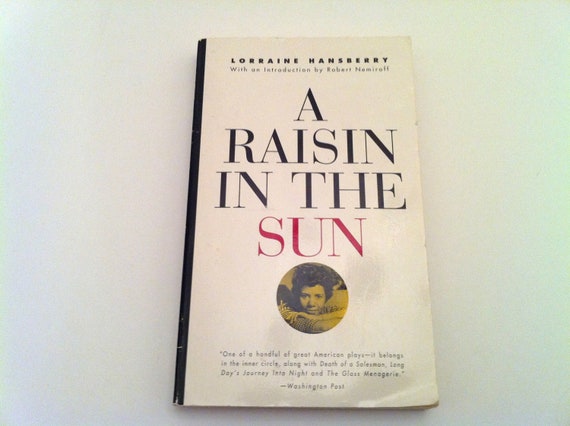
It explores themes of discrimination, assimilation, black pride, gender, and sacrifice its title is a reference to the Langston Hughes poem, “Harlem” (“A Dream Deferred”). Set in the postwar era, the play follows the family’s struggles with poverty and their decision to move to a single-family home in the all-white neighborhood of Clybourne Park. She wanted to say something in that imperfect way that life feels like," Isaac said.Lorraine Hansberry’s groundbreaking play, A Raisin in the Sun (1959), tells the story of the Youngers, three generations of an African American family living together in a small apartment on Chicago’s South Side. "She wrote this beautiful, beautifully perfect, immaculate play, 'A Raisin in the Sun,' and, as she was on her way out of this world, had so many things that she wanted to say and didn't care about a perfectly made play.

"What can you tell me about the play in terms of its structure and the way it's written and it's written by this great playwright?" Carlin asked.

The play's lead characters bicker, caught in fraught marriage, surrounded by tumultuous events, and they wrestle with notions of what it means to be bohemian, intellectual or progressive and striving for change. I just kind of bent my knees and was ready to see what happened and jumped on board," Brosnahan said. and to transfer it within a few weeks, it's wild," Isaac said "The fact that somehow things lined up the way they did. "Did you hope that it would make a transfer?" Carlin asked. Read more: Oscar Isaac and Rachel Brosnahan star in "The Sign in Sidney Brustein's Window" at the Brooklyn Academy of Music.This production is a transfer from the Brooklyn Academic of Music's Harvey Theater, where it was hit, to Broadway's James Earl Jones Theatre.

"The Sign in Sidney Brustein's Window" originally came to Broadway in the mid-60s, after Hansberry had already penned her masterpiece "A Raisin in the Sun." She died of pancreatic cancer in 1965 at age 34.


 0 kommentar(er)
0 kommentar(er)
